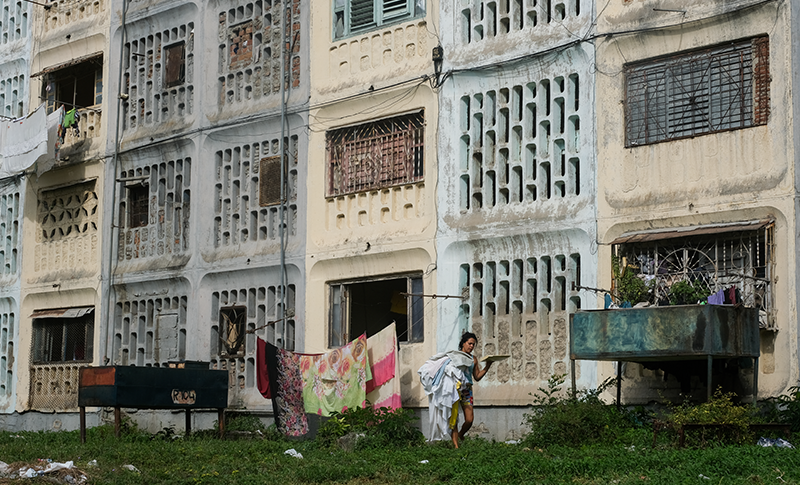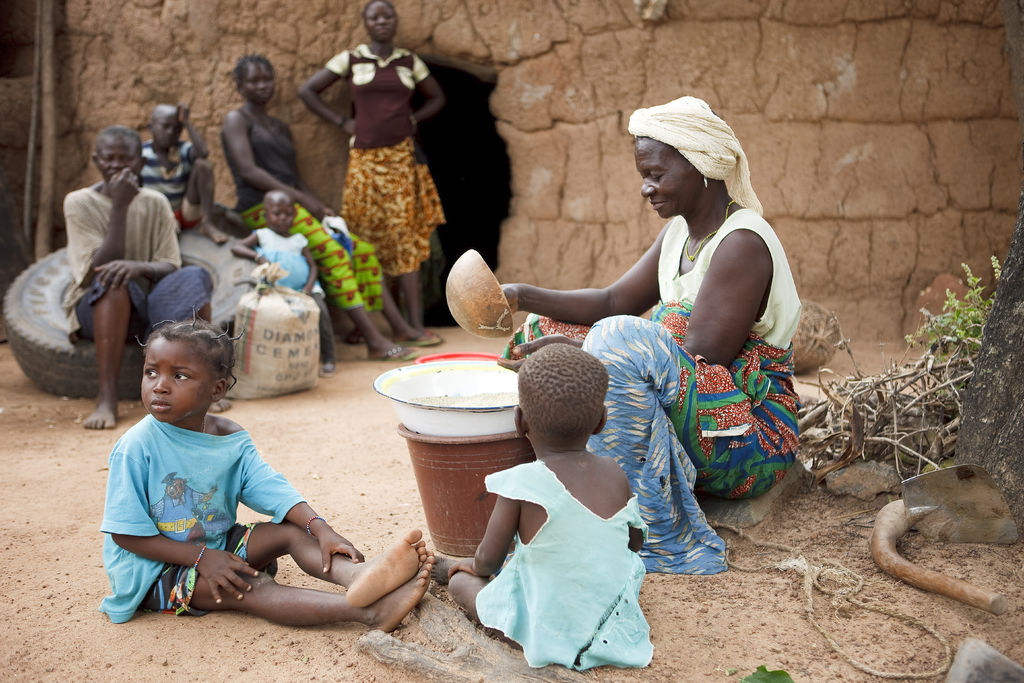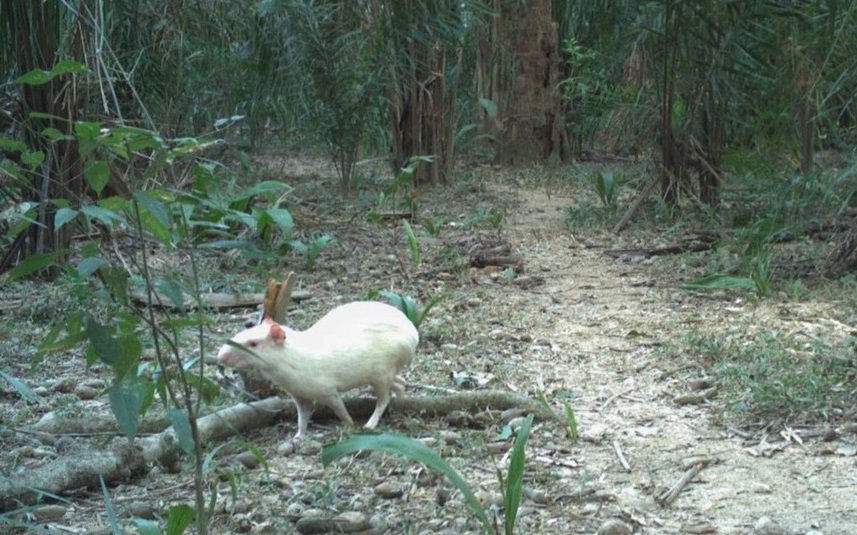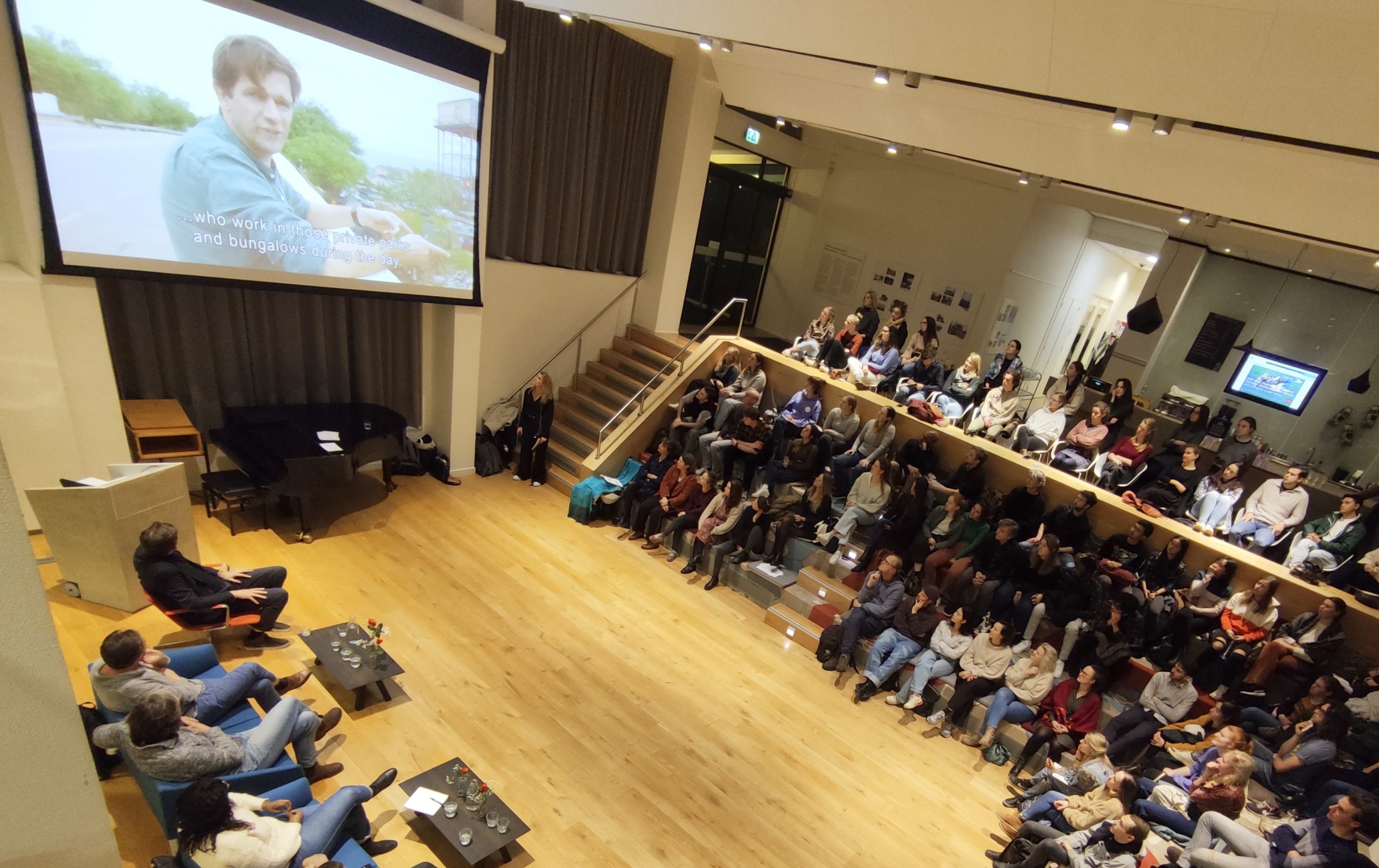When he came to Wageningen, Martijn Koster brought his ethnographic project financed with a European Consolidator Grant with him. The project is called Politics of the Periphery in Urban Latin America, and a photographic exhibition about it can be viewed in the Leeuwenborch at the end of June.
Koster has joined the Sociology of Development and Change chair group as an associate professor. He describes his research as ‘at the interface between political anthropology and critical development studies,’ with Latin America as its primary geographical focus. His latest project, for which he got an ERC Consolidator Grant worth two million euros, is located there too. To be precise, in Medellín (Colombia), Recife (Brazil) and Santiago de Cuba (Cuba). Together with a research team including three PhD researchers (one for each city) and two postdocs, he will study the relationships between residents of the periphery and the state, looking specifically at housing and urban development.
Preferably, the researchers live in the periphery they are studying for the duration of the project
Fundamental agreement
Koster took the issue of housing as the focal point because it constitutes a kind of ‘fundamental agreement’ between citizens and the state. ‘Sometimes it is anchored in the constitution, and sometimes not – but almost everywhere in the world, it is the task of the government to ensure there is sufficient affordable, qualitatively good housing in a healthy environment. And that applies to the three countries we’re doing research in as well. Only it doesn’t always work out too well in practice – and that is an understatement, especially when it come to lower income groups,’ says Koster. What happens when a government does not fulfil this fundamental task is at the heart of the study: ‘How does that affect residents’ ideas and expectations of the state, now and in the future? And does it, for example, affect the way they organize themselves politically?’
Bulldozered
According to Koster, Politics of the Periphery in Urban Latin America, POPULAR for short, is a typical anthropological study: it is all about how people give meaning to their reality. The researchers collect most of their data through participant observation – preferably living in the periphery they are studying for the duration of the project – and through interviews, supplemented by analysis of government documents and media. ‘Clear differences exist between the three cities in terms of the interactions between residents and government. We want to compare these, so that each case study poses questions for the others: what happens to the residents of bulldozered informal neighbourhoods in one of the cities? And how is that done in another city? What are the effects? You could call it comparative urbanism,’ he explains.
The idea of social engineering
What makes the project so interesting, says Koster, is that people in Latin America generally believe that the authorities are capable of bringing about change. ‘At the same time, people are tremendously distrustful of government. And with good reason: an awful lot of promises are not kept, and nice plans are not carried out. And if the authorities do keep their word, it is not usually to the benefit of the people in the periphery. Remarkably, that deep distrust nearly always goes hand in hand with a glimmer of hope – perhaps the hope that the new mayor or presidential candidate will fulfil promises, or that an outsider from outside the establishment can turn the tide. A belief in social engineering persists. I find that optimism in spite of everything, that ambiguity, fascinating. We scientists often tend to want to filter ambiguities out of research. But ambiguity is a fact of life.’
Doubly marginalizing
There is another ‘why’ underlying this research: a deeper theoretical necessity, as Koster describes it: the development of a new epistemological framework, with a vocabulary that does more justice to the position and identity of the residents of the periphery. Koster: ‘In essence, this project is about what the literature calls epistemic injustice. I am certainly not the first to do research on the relationship between citizens and the state in Latin America. What I noticed in the literature about it, is that there is a lot of talk about “pseudo” citizenship or “informal” politics. There is something denigrating about that terminology: it is doubly marginalizing in a way. People in the favelas and other poor neighbourhoods have already been let down by a government that doesn’t do its duty, and that simply denies them access to many institutions and laws. And then their relationship with the government is dismissed as “pseudo” or “informal” – and certainly not as “normal” citizenship. I would like to turn that around, giving us a new way of interpreting the relationship between the state and these city-dwellers – from their perspective. That also makes a city more inclusive. Because the “periphery” includes a very big proportion of the population. In a city like Recife, it easily covers one third of the city’s population – and that may well be a conservative estimate.’
Photographic exhibition
In the context of this project, Koster recently travelled to Santiago de Cuba, one of the study’s three cities, with the award-winning photographer Sanne Derks – a PhD-holding anthropologist who will join the project as a postdoc in December. They have worked together before in Rio de Janeiro, on a photographic report about the impact of the Olympics on housing in the favelas. A selection of the work that Derks created in Santiago de Cuba will be exhibited on the third floor of the Leeuwenborch from 24 to 28 June.

 Gran Panel Sovietico-houses in Santiago de Cuba. See frame. Photo Sanne Derks
Gran Panel Sovietico-houses in Santiago de Cuba. See frame. Photo Sanne Derks 

